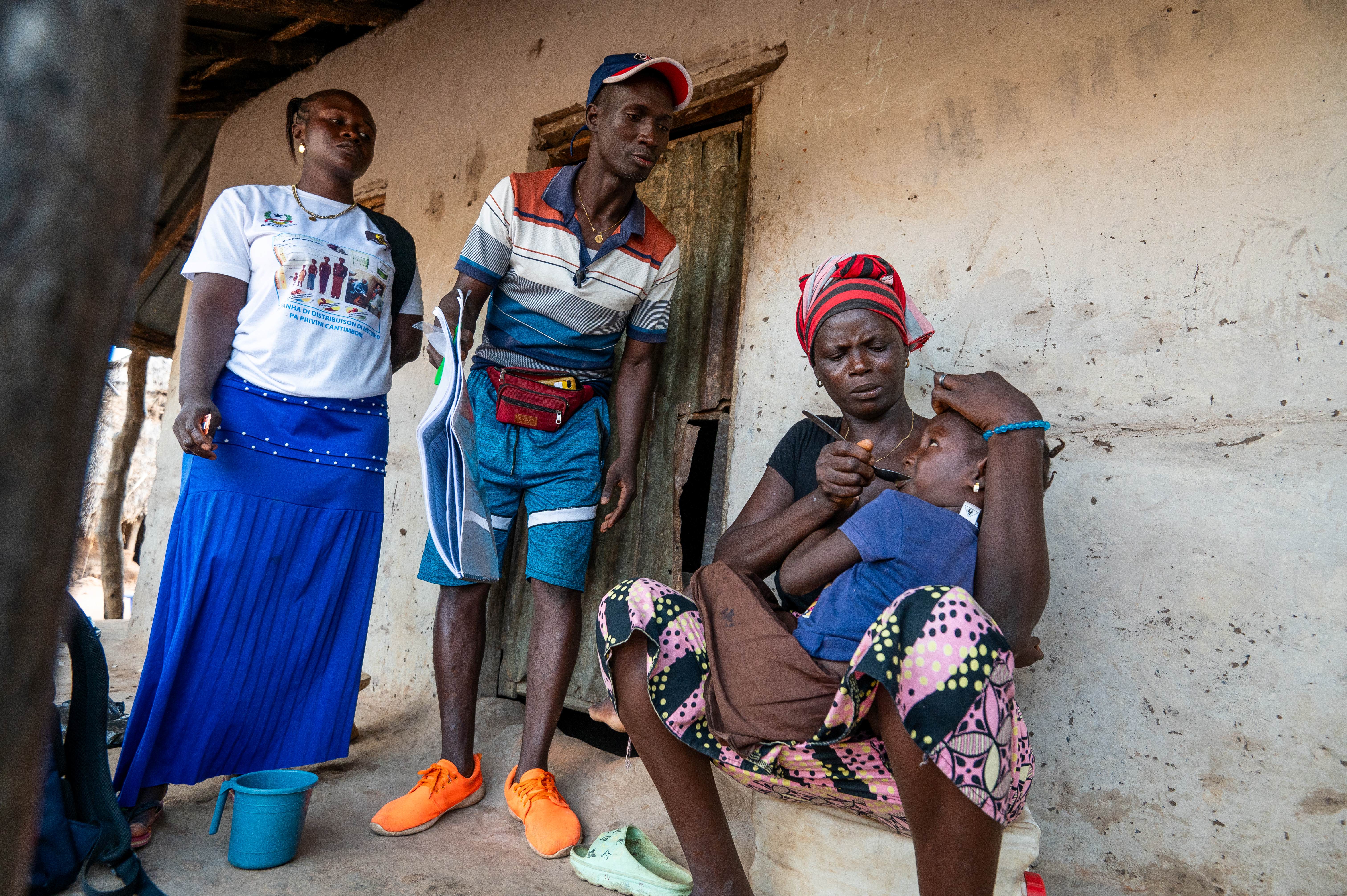Grandma Nbeta’s story
Prevention Matters
November 18, 2024

Grandma N’beta with her grandson Seco
It was a muggy afternoon in Gabu, Guinea-Bissau, and the tabanca was surrounded by the sound of crickets and the smell of warm earth.
Nbeta, a grandmother with a serene smile and a warrior’s heart, gazed tenderly at her grandson Seco, just six months old. In her arms, he was the centre of her world and her greatest concern as she knew he remains vulnerable to deadly diseases such as malaria.
Today, Amadu, the community health worker of her village passed by to give Seco a malaria preventive treatment, that will reduce the risk of Seco contracting. Amadu passes by every month during the rainy season to give this treatment to all children below 10 of the community.
Seasonal malaria chemoprevention (SMC or QPS in Portuguese) primarily targets young children. In Guinea-Bissau, the SMC 2024 campaign includes children up to the age of 10 for the first time. Gabu is the region with the highest malaria prevalence in the country. Grandma Nbeta knew what malaria could do. The disease, which appeared with the arrival of the rains, had already taken friends, neighbours and even relatives.
Prevention matters
Grandma Nbeta thought about it when she heard about the campaign. The idea of giving little Seco medicine, even though he wasn’t ill, seemed strange. But the Health Officer at the local health center, Jamilia, patiently explained that the medication acted as a barrier, preventing the malaria parasite — plasmodium — from attacking the child’s body. It would be enough for him to take the three preventative doses during each month of the rainy season, when the mosquito proliferates, to drastically reduce the risk of having malaria.

Jamilia and Amadu, Community Health workers visiting N’beta’s village
The Importance of the SMC Campaign for Gabu and Beyond
Seasonal malaria chemoprevention (SMC) is a public health intervention recommended by the WHO with the aim of reducing the incidence of malaria in sub-Saharan African countries where transmission is highly seasonal (during the rainy season). This strategy involves the regular administration of antimalarial drugs to children, who are the most vulnerable to severe malaria and its complications. To date, 17 countries (Benin, Burkina Faso, Cameroon, Côte d’Ivoire, Chad, Gambia, Ghana, Guinea, Guinea-Bissau, Mali, Mauritania, Mozambique, Niger, Nigeria, Senegal, Togo and Uganda) have implemented Seasonal Malaria Chemoprevention, with the support of community health workers and volunteers [1].

Foto:
The main objective of SMC is to prevent malaria episodes by maintaining therapeutic levels of drugs in the blood during the period of high malaria risk, thus reducing morbidity and mortality among children, saving lives and reducing the burden of disease on communities and health systems. Little Seco is one of the 250.000 children below 10 years that could benefit from the 2024 SMC campaign in the four malaria high-transmission regions in Guinea-Bissau.
Recent studies have shown that SMC can reduce the incidence of malaria by up to 75 per cent in children, making it a highly effective intervention in areas with seasonal malaria transmission.
[1] Seasonal Malaria Chemoprevention West & Central Africa | SMC Alliance (smc-alliance.org)
Grandma Nbeta smiled, knowing that the collective effort of more than 3,000 people, coordination between the UNDP procurement, M&E and finance teams, the National Malaria Programme, UNICEF, WHO and the Global Fund in making the SMC campaign possible, was an important step towards a future in which malaria no longer threatened their families.

 Locations
Locations